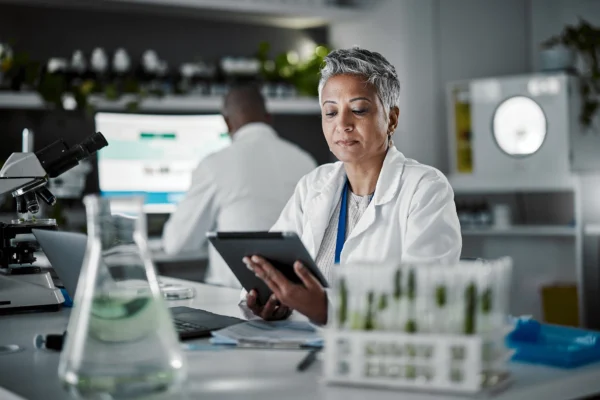The Center for Food Integrity
Gene Editing

The Center for Food Integrity

Gene editing is making possible innovations that make food healthier, more sustainable and even better tasting.Gene editing is actually a suite of technologies that make targeted, precise changes to the DNA of living organisms. CRISPR is one type of gene editing that is widely used in research.
While these edits happen at a microscopic (molecular) level, they could have a significant positive impact on our world. In the field of medicine, for instance, researchers are using gene editing to treat diseases such as cancer and genetic disorders. In agriculture, gene editing is used to breed plants and animals, reduce diseases, and minimize the impact of pests and severe weather. Gene editing can also be used to make foods taste better, increase nutrients and prolong shelf-life to reduce waste.
Some foods developed with gene editing technology are already on the market. These include leafy greens that are higher in nutrients and more flavorful, gene edited tomatoes with more vitamin D and soybean oil that does not contain trans-fat. Many more gene-edited foods are on the horizon, with more than 500 products under development globally, according to S&P Global.
Gene editing can be a useful technology in many ways for the food system, scientists believe. Dr. Rodolphe Barrangou, Distinguished Professor at North Carolina State University, is a leading gene editing researcher.
“The ability to recode the code of life of all organisms from very simple basic viruses to microscopic bacteria, fungi, yeast and the like, all the way to sophisticated large organisms like livestock that we eat, plants including crops that we consume and of course, humans for medical applications. And even in environmental stewardship for things like trees and forestry. It is a transformative, disruptive technology that allows humankind to recode the code of life across the planet,” Dr. Barrangou said in an interview with Best Food Facts, a platform from The Center for Food Integrity.
Read more on Best Food Facts:
The Center for Food Integrity is working to make sure those in food and agriculture are able to continue to develop gene editing to solve important issues. It is important that gene editing is understood and supported throughout the food value value and that consumers are able to trust in the safety of gene edited products.
CFI brought together a diverse network of food system stakeholders to form the Coalition for Responsible Gene Editing in Agriculture. The Coalition developed the Framework for Responsible Use in Agriculture to provide assurance to the food system and other stakeholders that those using gene editing within the Framework do so in the best interests of agriculture, the food system and society in general.
The Framework for Responsible Use has been publicly endorsed by agriculture and food leaders including Benson Hill, BIO, Cargill Inc., Corteva Agriscience, Costco Wholesale, FMI – The Food Industry Association, Genus PLC, PepsiCo and Tropic Biosciences. Corteva AgriScience is the first company to achieve verification of operating in conformance with the framework.
The Framework for Responsible Use has been publicly endorsed by agriculture and food leaders including Benson Hill, BIO, Cargill Inc., Corteva Agriscience, Costco Wholesale, FMI – The Food Industry Association, Genus PLC, PepsiCo and Tropic Biosciences. Corteva AgriScience is the first company to achieve verification of operating in conformance with the framework.
Gene editing is a valuable technology that helps solve some of the most important issues in food and agriculture. The Center for Food Integrity and the Coalition for Responsible Gene Editing in Agriculture are working to build trust in gene editing.
Share your contact information with our team to learn how CFI can help.